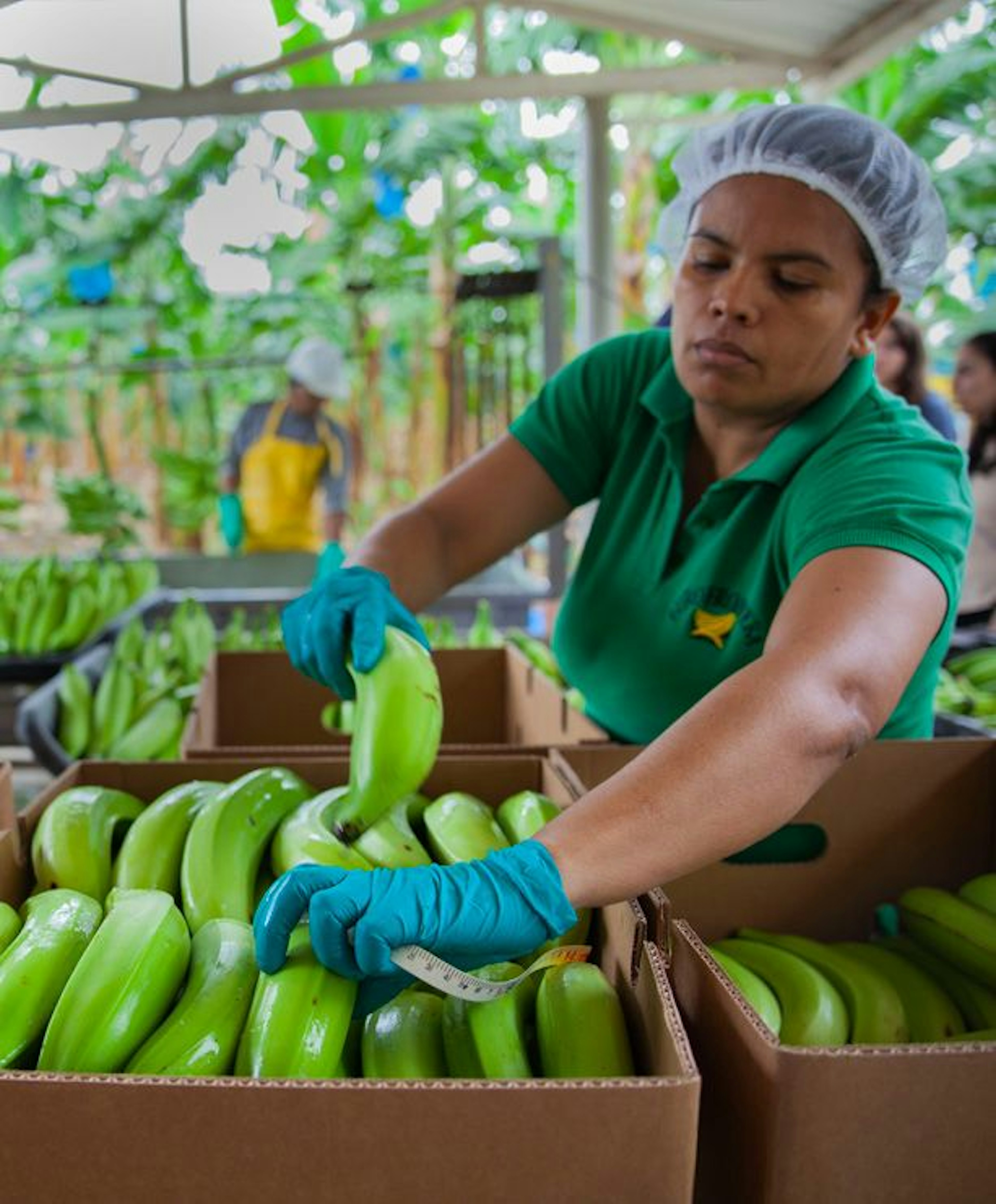Banana

Overview
The most widely eaten and traded fruit in the world, bananas are grown in warm and humid conditions. Bananas ripen all year round, and are important to farmers, workers and families in more than 150 countries as a source of nutrition and income.
Bananas are cultivated on small-scale farms and large plantations; Fairtrade works with both forms of production. Smallholders produce just 5 % of the internationally traded bananas, but play a large role in rural development.
Banana farmers and the roughly 600,000 banana workers in global supply chains face low earnings, due to heavy price pressure in the supply chains. The pressure originates with consumers and retailers: Retailers often rely on the appeal of cheap bananas to draw shoppers to the store.
The salient issues in the banana sector are (in the order of saliency):
- Living income & wage
Banana producers face very low prices. Smallholders struggle to compete with large plantations. Research suggests that Colombia and Ecuador are the only large producer countries, where living wages are close.
- Water & Biodiversity
Imprecise fungicide application by air contaminates surrounding areas and waterways. High water consumption alters the availability of water in local communities and ecosystems.
- Climate change
In banana chains, farm activities, sea transport, transport in consumer country, and consumption may cause roughly equal amounts of greenhouse gas emissions. On farms, most emissions are caused by nitrogen-based fertilizers.
- Working conditions
Working conditions differ from country to country, but excessive overtime, informal work arrangements and harsh conditions for migrant workers are common.
- Freedom of association
Many banana farms do not engage with trade unions in social dialogue, and union members and organisers continue to face pressure, retaliation and blacklisting.
- Health
The risk of pesticide exposure is elevated for banana farmers, workers and local people. Resulting symptoms range from headaches to cancer and children born with deformities.
- More information on risks in bananas

Root causes
Unfair pricing and purchasing practices: Retailers are estimated to capture a lion's share with some even 30 - 40 % of the value from banana sales. Other downstream actors combined capture roughly 40 %, while producers capture 7 - 17 % and workers 7 - 9 %.
Dominance of monoculture production: Chemical intensive production methods drive biodiversity loss and water pollution, greenhouse gas emissions, and health risks.
Climate change: Banana cultivation will shift away from some of today’s main producer countries.
Background data on bananas (*Global Volume / **Fairtrade Volume)
Largest producer countries*
- India (36%)
- China (12%)
- Indonesia (10%)
- Nigeria (8%)
- Brazil (7%)
- Others (26%)
Data from 2022.
Source: FAO 2024.
Dominant production model*
of all globally produced bananas are cultivated by small-scale farmers
Source: Solidaridad 2023.
Fairtrade certified producer organisations**
Data from 2022. Updated in March 2024.
Fairtrade certifiable production**
metric tonnes in 2022. Updated in March 2024.
Farmers and workers in Fairtrade organisations**
Data from 2022. Updated in March 2024.

Stay updated
Partnering for change
Companies can be part of the solution by identifying and addressing the most serious risks and root causes in collaboration with farmers, workers and other affected people. Sign up to receive updates as we add new information to this Map, or to hear how Fairtrade can support your corporate sustainability due diligence.
Map View